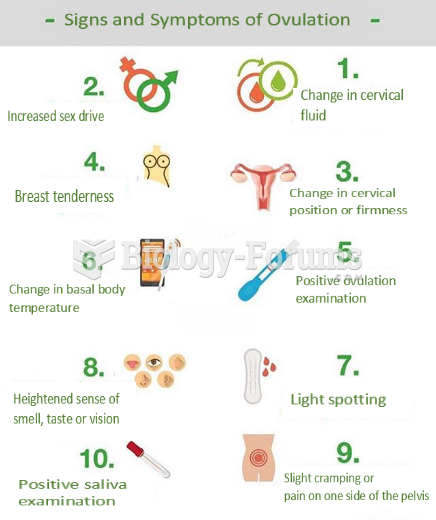Answer to Question 1
Correct Answer: 3
Rationale 1: Echothiophate is not an antidote; it would have the opposite effect.
Rationale 2: Organophosphate poisoning requires immediate life-saving interventions.
Rationale 3: The nurse should expect to administer a stat dose of pralidoxime or atropine as an immediate antidote.
Rationale 4: Neostigmine is not an antidote; it would have the opposite effect.
Global Rationale: The nurse should expect to administer a stat dose of pralidoxime or atropine as an immediate antidote. Echothiophate is not an antidote; it would have the opposite effect. Organophosphate poisoning requires immediate life-saving interventions. Neostigmine is not an antidote; it would have the opposite effect.
Answer to Question 2
Correct Answer: 1,2,3,4
Rationale 1: Home safety measures need to be reviewed with the client who is prescribed neostigmine (Prostigmin). The client could experience muscle fatigue and orthostatic hypotension, which could precipitate falls.
Rationale 2: Administering the medication with food helps to minimize adverse effects.
Rationale 3: These are signs of excessive autonomic nervous system stimulation and could indicate an overdose.
Rationale 4: Muscle weakness within 1 hour of a dose may indicate overdosing, and muscle weakness within 3 hours of a dose may indicate underdosing.
Rationale 5: If shortness of breath occurs, the client should seek medical attention because this could be a sign of a potential overdose. The client should not be instructed to stop taking this medication.
Global Rationale: Home safety measures need to be reviewed with the client who is prescribed neostigmine (Prostigmin). The client could experience muscle fatigue and orthostatic hypotension, which could precipitate falls. Administering the medication with food helps to minimize adverse effects. Tremors, dizziness, or urinary retention are signs of excessive autonomic nervous system stimulation and could indicate an overdose. Muscle weakness within 1 hour of a dose may indicate overdosing, and muscle weakness within 3 hours of a dose may indicate underdosing. If shortness of breath occurs, the client should seek medical attention because this could be a sign of a potential overdose. The client should not be instructed to stop taking this medication.






